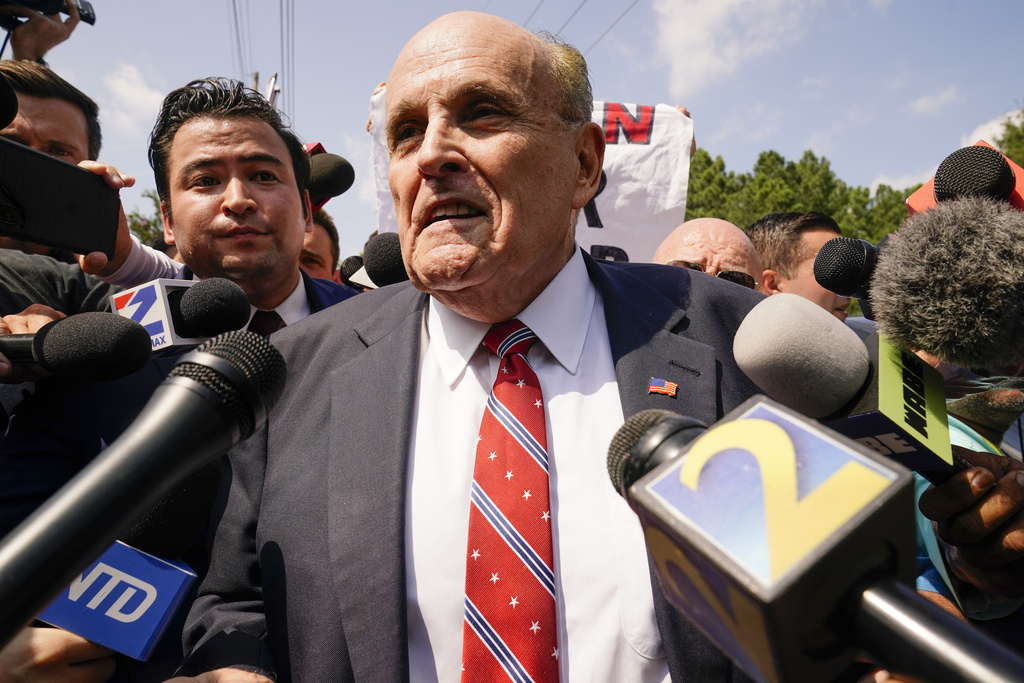A federal judge on Wednesday held Rudy Giuliani liable in a defamation lawsuit brought by two Georgia election workers who say they were falsely accused of fraud, entering a default judgment against the former New York City mayor and ordering him to pay tens of thousands of dollars in lawyers’ fees.
U.S. District Judge Beryl Howell said the punishment was necessary because Giuliani had ignored his duty as a defendant to turn over information requested by election workers Ruby Freeman and her daughter, Wandrea’ ArShaye Moss, as part of their lawsuit.
Their complaint from December 2021 accused Giuliani, one of Donald Trump’s lawyers and a confidant of the former Republican president, of defaming them by falsely stating that they had engaged in fraud while counting ballots at State Farm Arena in Atlanta.
The ruling enables the case to move forward to a trial in federal court in Washington to determine any damages that Giuliani must pay. He will have a “final opportunity” to produce the requested information, known under the law as discovery, or face additional sanctions if he fails to do so.
In the meantime, Howell said, Giuliani and his business entities must pay more than $130,000 in attorneys’ fees and other costs.
“Donning a cloak of victimization may play well on a public stage to certain audiences, but in a court of law this performance has served only to subvert the normal process of discovery in a straight-forward defamation case, with the concomitant necessity of repeated court intervention,” Howell wrote.
Ted Goodman, a political adviser to Giuliani, said in a statement that the judge’s ruling “is a prime example of the weaponization of our justice system, where the process is the punishment. This decision should be reversed, as Mayor Giuliani is wrongly accused of not preserving electronic evidence that was seized and held by the FBI.”
Last month, Giuliani conceded that he made public comments falsely claiming the election workers committed ballot fraud during the 2020 election, but he contended that the statements were protected by the First Amendment.
(AP)











